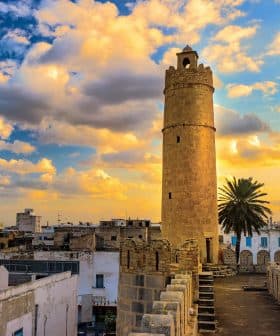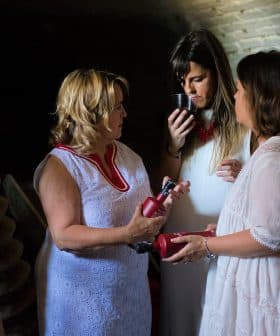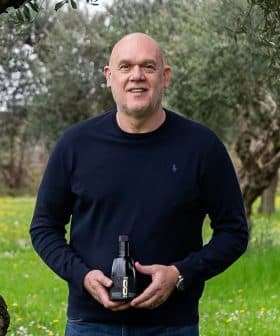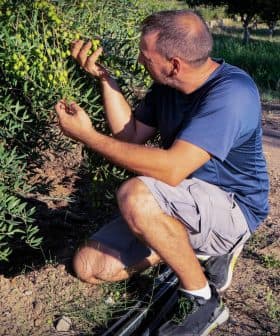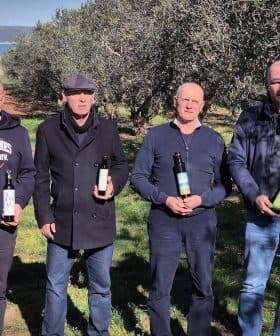The Joy and Sacrifice of Organic Olive Oil Production on Mallorca
Oli de Santanyi founder Dirk Müller-Busch believes that producers who want a fair price must meet consumer demands for organic, high-quality extra virgin olive oil at all costs.
 Grazing sheep control weeds in an organic olive farm in Mallorca (Photo: Oli de Santanyi)
Grazing sheep control weeds in an organic olive farm in Mallorca (Photo: Oli de Santanyi) Dirk Müller-Busch of Oli de Santanyi believes that producers must prioritize quality over quantity and expect fair prices from knowledgeable consumers. Despite challenges such as high temperatures, the company won its tenth Gold Award at the 2023 NYIOOC World Olive Oil Competition, showcasing its commitment to producing high-quality organic olive oil through careful cultivation and production processes.
Dirk Müller-Busch believes that producers must sacrifice quantity to achieve award-winning quality and expect a fair price for their extra virgin olive oil from increasingly knowledgeable consumers.
On the southwestern coastline of the Spanish Mediterranean island of Mallorca, the founder of Oli de Santanyi takes advantage of the region’s unique microclimate to produce limited batches of award-winning organic olive oil.
“If you want to get a fair price for your work and produce a high-quality product, you have to meet all the criteria demanded (by the consumers).
Despite the “the severe drought throughout the year and the high temperatures” during the 2022/23 crop year, Oli de Santanyi once again won a Gold Award – the company’s tenth since 2016 – at the 2023 NYIOOC World Olive Oil Competition.
Müller-Busch, a dentist and implant specialist, told Olive Oil Times that his medical background and passion for olive oil and cooking set him on the path to becoming an olive farmer and olive oil producer more than a decade ago.
See Also:Producer Profiles“The idea of producing a high-quality organic olive oil originated from my medical background and my passion for culinary art,” he said. After attending olive oil courses and traveling through Europe and South America, Müller-Busch set his plans in motion to create Oli de Santanyi in 2010.
He attributed much of his success to the team of well-known olive oil experts and agronomists who advised him on siting and planting his organic groves and develop milling techniques to overcome increasingly hot autumn temperatures and preserve the minor compounds than endow olive oil with the vast majority of its health benefits.
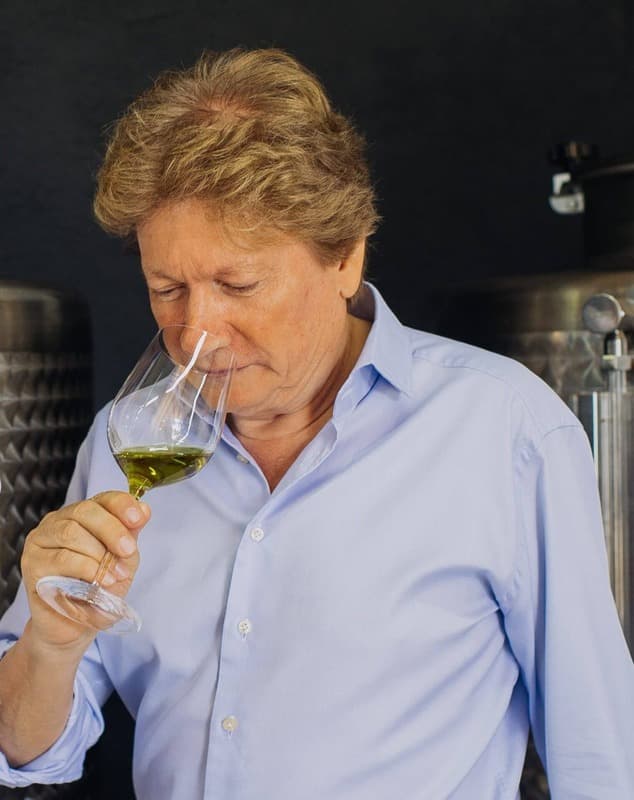
Dirk Müller-Busch founded Oli de Santanyi in 2010. (Photo: Oli de Santanyi)
“Our idea was to produce an olive oil crafted like wine,” Müller-Busch said. “At Oli de Santanyi, olives are cultivated in the same way as vines. Regular pruning provides uniformity to the canopy and influences the quantity of olives per tree. As yield increases, so does the quality of the fruit.”
“Olives have the highest content of healthy ingredients at the beginning of their ripening phase. Therefore, early harvesting is essential for us regarding quality,” he added. “It guarantees the maximum preservation of valuable secondary plant substances [such as polyphenols and sterols], which have a positive effect on human health and, at the same time, protect olive oil from aging.”
Among the challenges the producers behind Oli de Santanyi have had to overcome are the high temperatures that Mallorca experiences in late September when the harvest begins.
“This early harvest requires a high level of knowledge, technology and experience,” Müller-Busch said. “Cooling the olives is particularly important, as temperatures can still reach 30 ºC at the time of harvest. For this reason, the olives are placed directly in a refrigerator.”
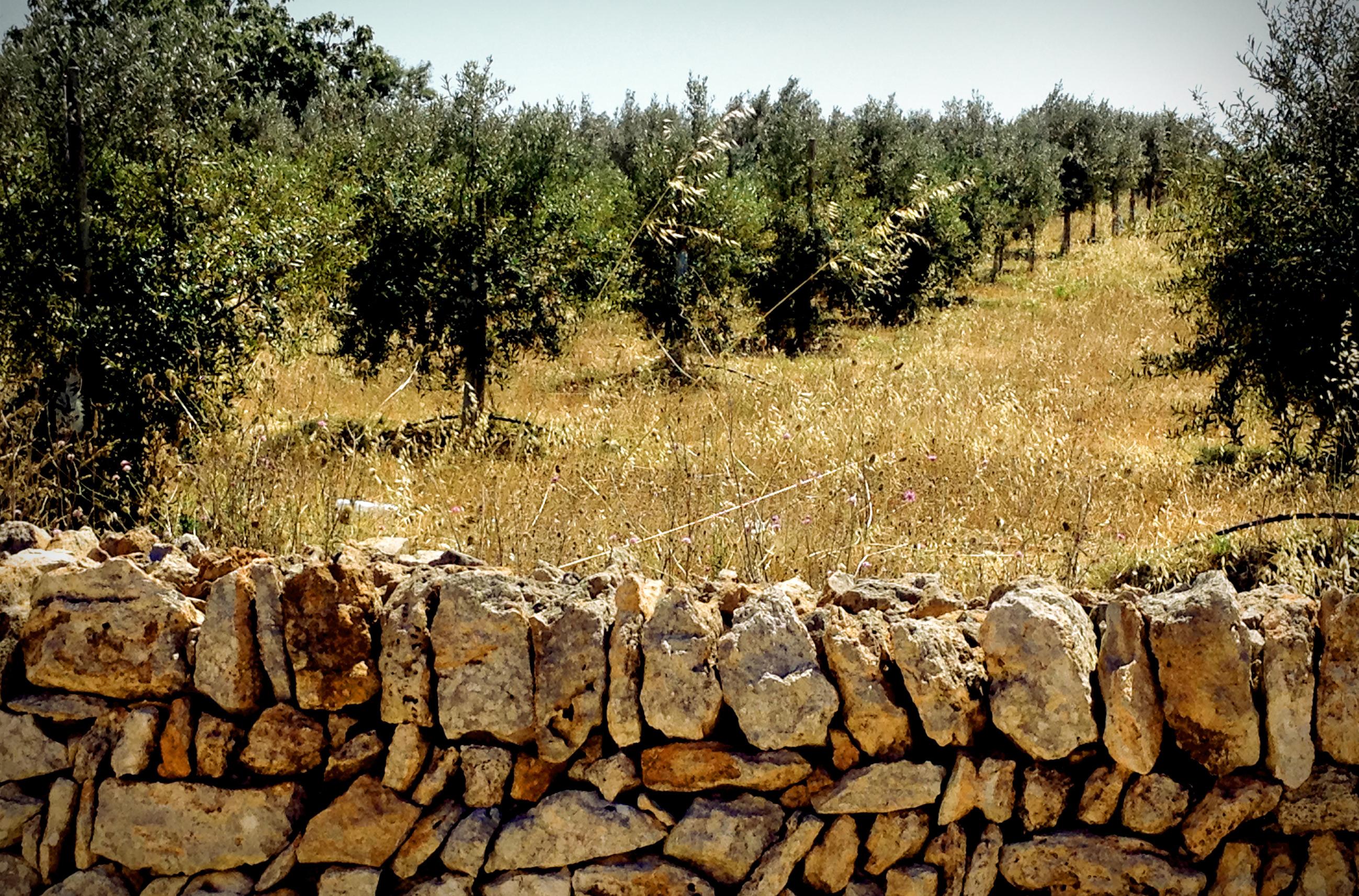
Oli de Santanyi grows Picual, Empeltre and Arbequina in the Aceite de Mallorca PDO. (Photo: Oli de Santanyi)
Those olives are cooled for two to three hours down to 16 ºC before reaching the mill. There, the extraction process is carried out with temperatures ranging from 20 ºC to 23 ºC.
“Our oil is filtered twice after extraction, so we also remove any remaining amniotic fluid,” he said. “This is an indispensable requirement for the olive oil to maintain its stability.”
While preserving quality, the double filtration reduces the final olive oil yield. “Given the early harvest and the double filtration, our yield is usually between eight to 10 percent, against the 15 to 18 percent that can be found in a conventional olive mill,” Müller-Busch said.
“This means we need about 12 kilograms of olives for one liter of olive oil, whereas normally it would require about six to seven kilograms,” he added.
The company’s 15-year-old olive orchards are planted as traditional groves and are home to three olive cultivars typical of Mallorca: Arbequina, Picual and Empeltre. Since 2003, those cultivars have contributed to the Aceite de Mallorca Protected Designation of Origin (PDO) production.
“At our mill, the temperature is computer-controlled at each stage of the process,” Müller-Busch said. “Each variety is pressed individually, and different speeds are set in the blade mill and different times in the mixers.”
The company’s team devised the specifics of the olive oil mill itself. “The mill makes it possible to work without adding water and without contact with air to prevent oxidation and fermentation,” Müller-Busch said.
Olive oil is stored in modern stainless steel tanks, avoiding contact with oxygen. When bottled, the contents are vacuum-filled to prevent oxygen in the neck of the bottle.

Oli de Santanyi’s modern mill and stainless steel tanks are part of the company’s keys to success at the NYIOOC. (Photo: Oli de Santanyi)
“We also use special glass bottles that guarantee absolute protection from light, called violet glass,” Müller-Busch said.
Violet glass is a quasi-black light-filtering material that has long been considered capable of preventing product degradation.
Only the violet light spectrum can reach the bottle’s contents due to the minerals included in the manufacture of the glass.
Reflecting on the 2023/24 crop year, Müller-Busch said Mallorca’s mild weather seems to have boosted local producer confidence.
“Overall, this season has been satisfactory in Mallorca, as there has been enough rain throughout the year,” he said. “Therefore, the results came in better than in previous years, and the quality of the olives was very good.”
“Organic is only feasible in smaller production units to ensure truly exceptional quality,” he added. “The effort required to care for and monitor the olives is considerably greater than conventional cultivation, so well-done organic farming is only possible in small-scale production.”
According to the producer, nowadays, both technology and knowledge to produce the best quality of extra virgin olive oils are at hand for anyone willing to invest.
“The biggest challenges, especially for smaller organic farms, are the changing climate conditions, capital investment in the production and milling process, the general increase in costs due to inflation and establishing a suitable price for the oil in the market,” Müller-Busch said.
He added that adopting organic farming techniques and winning at the NYIOOC helped the company build trust.

Organic farming methods are more costly than conventional alternatives, but pay off in the long run as consumer demand for organic olive oil soars. (Photo: Oli de Santanyi)
“If you want to get a fair price for your work and produce a high-quality product, you have to meet all the criteria demanded [by the consumers],” Müller-Busch said. “This also means that the oil must be free of pesticides.”
“Transparency with consumers is ensured by making the analyses of the product public, as they also generate trust,” he added.
Even with a growing global appetite for organic olive oil, maintaining an organic olive farm is more expensive and time-consuming than conventional farming.
“In addition to not using herbicides, insecticides or artificial fertilizers, synthetic chemicals are not used to combat pests and diseases,” Müller-Busch said.
“Our organic farming is based on natural cycles, and pests are controlled by their natural enemies or mechanically,” he added. “The biodiversity of herbs, grasses, flowers, and more provides the soil with the necessary nutrients and increases the resistance of the olives to pests and diseases.”
Despite the challenges of being organic, Müller-Busch said consumers are becoming more aware of the value of organic farming and extra virgin olive oil quality.
“We are also proud that with our project, we have been able to encourage some producers in Mallorca to follow our path towards innovative olive oil production,” he concluded.
Share this article




